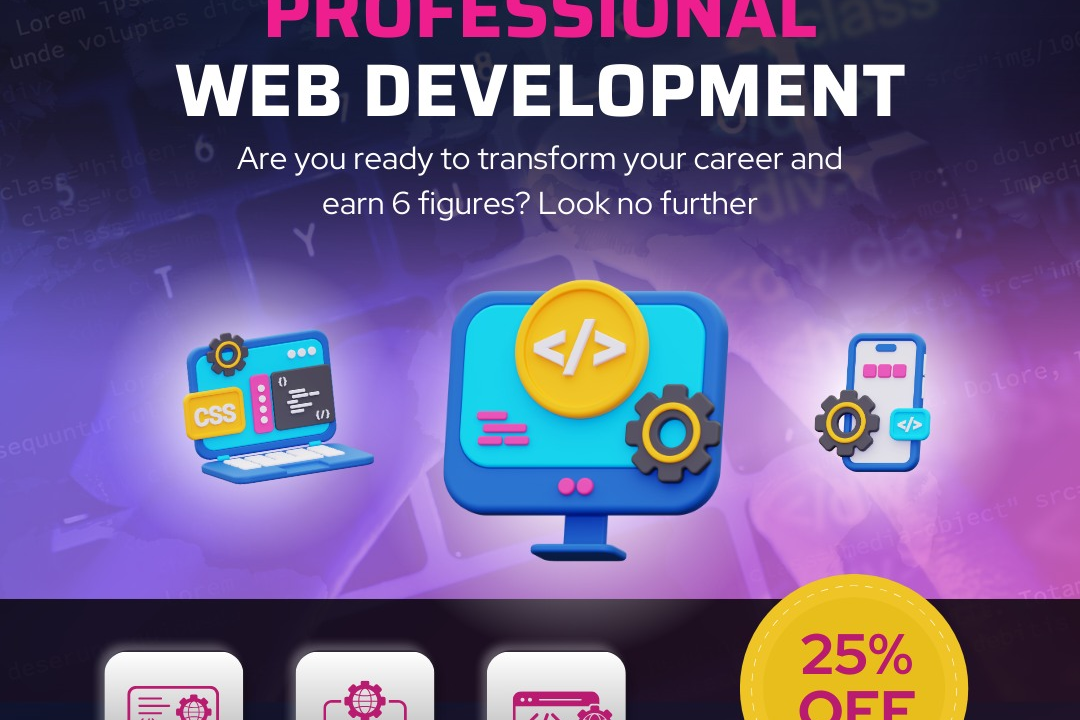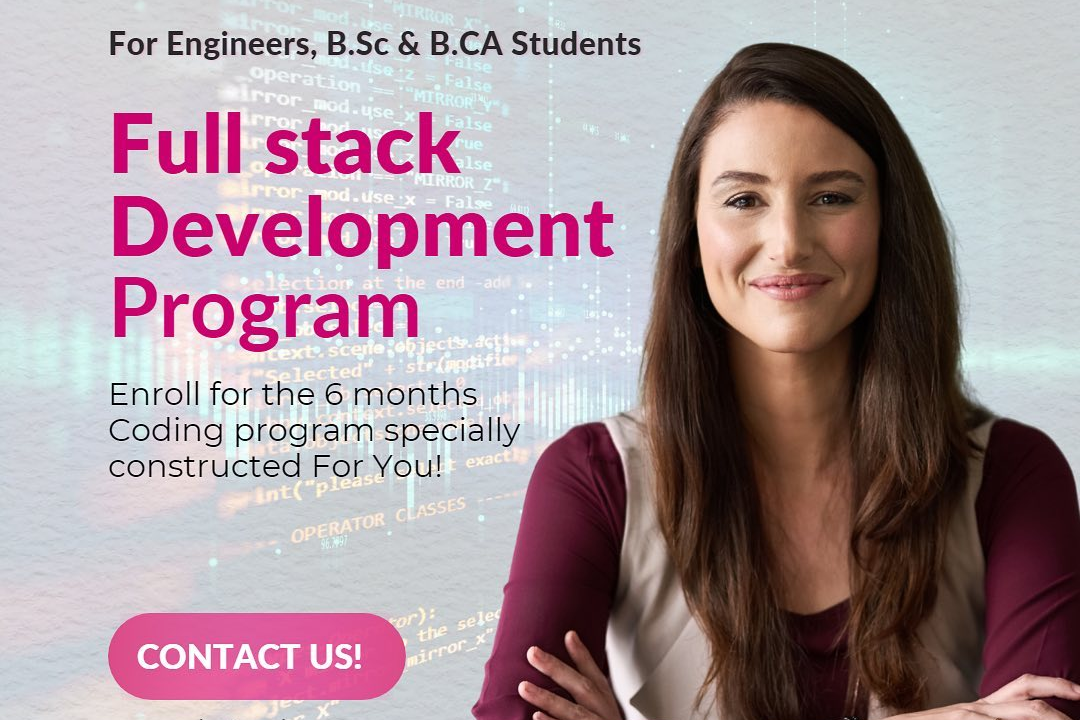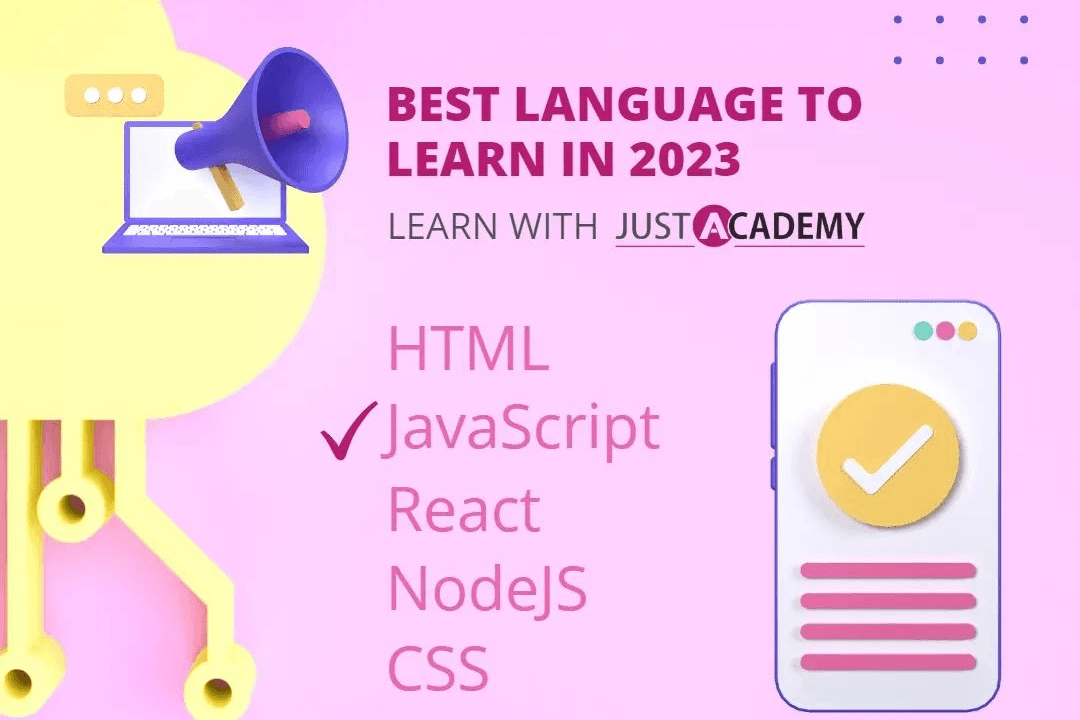Interview Questions For React Native Developer
React Native Developer Interview Questions
Interview Questions For React Native Developer
Interview questions for React Native developers assess their proficiency in core React Native concepts, JavaScript fundamentals, and mobile application development best practices. These questions help hiring managers gauge a candidate's ability to build and maintain high-quality mobile applications, leveraging the power of React Native's cross-platform capabilities.
To Download Our Brochure: https://www.justacademy.co/download-brochure-for-free
Message us for more information: +91 9987184296
1 - Explain the concept of state in React Native.
State is an object that holds data that influences the component's output. When state changes, the component re renders.
2) Describe the difference between props and state in React Native.
Props (properties) are immutable values passed down to components from their parent, while state is mutable data managed by the component itself.
3) What is the purpose of the `render()` method in React Native?
The `render()` method is where the UI of the component is defined. It returns a JSX element tree that represents the component's view.
4) Explain the use of navigation in React Native.
Navigation allows users to navigate between different screens in the app. It is commonly handled by the `NavigationContainer` component and `Navigator` components.
5) Describe the concept of hooks in React Native.
Hooks are functions that allow you to use state and other React features without having to write class components.
6) Explain the difference between class and functional components in React Native.
Class components use a class syntax and have a lifecycle, while functional components are pure functions that take props as input and return a JSX element.
7) What is the `StyleSheet` API in React Native?
The `StyleSheet` API allows you to create and manage styles for your components, defining properties such as color, font size, and layout.
8) Describe the concept of flexbox in React Native.
Flexbox is a layout system that allows you to control the size and position of your components using flexible units.
9) Explain the use of the `useEffect()` hook.
The `useEffect()` hook runs a function after the component has rendered, allowing you to perform side effects such as fetching data or handling animations.
10) Describe the difference between inline and external styles in React Native.
Inline styles are defined directly within the component's JSX, while external styles are defined in a separate `.css` file.
11 - Explain the concept of animations in React Native.
Animations in React Native are achieved using the `Animated` API, which provides classes and functions for creating and controlling animations.
12) Describe the use of third party libraries in React Native.
Third party libraries provide additional functionality and components that you can use in your React Native apps.
13) Explain the concept of Redux in React Native.
Redux is a state management library that helps you organize and manage application state in a central store.
14) Describe the use of the `AsyncStorage` API.
The `AsyncStorage` API allows you to store and retrieve data asynchronously, providing persistent storage for your app.
15) Explain the concept of performance optimization in React Native.
Performance optimization techniques include using optimized components, avoiding unnecessary re renders, and implementing memoization and lazy loading.
Play the game more often. The more you play, the more likely you are to win points.
Win games. The more games you win, the more points you will earn.
Complete daily and weekly challenges. These challenges offer bonus points for completing specific tasks.
Use power ups wisely. Power ups can help you win games more easily, which will lead to more points.
Join a team. Joining a team can give you access to bonuses and other benefits that can help you earn more points.
Be patient. Earning points takes time and effort. Don't get discouraged if you don't see results immediately. Just keep playing and you will eventually reach your goals.
Course Overview
Master the art of acing React Native developer interviews with this comprehensive course covering essential interview questions. Learn best practices for answering technical and behavioral questions, with expert guidance on showcasing your skills in React Native architecture, performance optimization, and debugging techniques.
Course Description
Prepare for React Native developer interviews with expert guidance. This course covers common interview questions, best practices, and technical challenges related to React Native app development. Learn strategies for answering algorithm and data structure questions, debugging techniques, and optimization principles. Enhance your communication and problem-solving skills to ace your interviews and secure your dream job.
Key Features
1 - Comprehensive Tool Coverage: Provides hands-on training with a range of industry-standard testing tools, including Selenium, JIRA, LoadRunner, and TestRail.
2) Practical Exercises: Features real-world exercises and case studies to apply tools in various testing scenarios.
3) Interactive Learning: Includes interactive sessions with industry experts for personalized feedback and guidance.
4) Detailed Tutorials: Offers extensive tutorials and documentation on tool functionalities and best practices.
5) Advanced Techniques: Covers both fundamental and advanced techniques for using testing tools effectively.
6) Data Visualization: Integrates tools for visualizing test metrics and results, enhancing data interpretation and decision-making.
7) Tool Integration: Teaches how to integrate testing tools into the software development lifecycle for streamlined workflows.
8) Project-Based Learning: Focuses on project-based learning to build practical skills and create a portfolio of completed tasks.
9) Career Support: Provides resources and support for applying learned skills to real-world job scenarios, including resume building and interview preparation.
10) Up-to-Date Content: Ensures that course materials reflect the latest industry standards and tool updates.
Benefits of taking our course
Functional Tools
Tools Used in the ‘Interview Questions for React Native Developers’ Course
1 - React Native: An open source framework for building native mobile applications using JavaScript.
2) Expo: A platform that provides a set of tools to facilitate React Native development, including a built in development environment and a marketplace for third party modules.
3) GraphQL: A data query language that allows developers to efficiently request and retrieve data from a server.
4) Redux: A state management library for React applications, enabling developers to track and update the application's state in a predictable and central manner.
5) Enzyme: A testing framework for React applications that provides a concise and easy to use API for writing tests.
6) Jest: A testing framework that supports a wide range of testing capabilities, including unit testing, integration testing, and end to end testing.
Training Program for Students
We offer a comprehensive training program for students who are interested in becoming proficient React Native developers. The program covers the following core concepts:
- React Native Fundamentals: Students will learn the basics of React Native, including its architecture, key components, and development workflow.
- Building React Native Apps:* Students will gain hands on experience in building real life React Native applications, covering various aspects such as UI design, state management, and data fetching.
- Advanced React Native Techniques:* Students will delve into advanced topics such as performance optimization, testing, and integrating third party libraries to enhance their development skills.
- Industry Best Practices:* Students will be exposed to industry leading practices and design patterns used by professional React Native developers, ensuring they are up to date with the latest trends.
- Effective Strategies to Increase Points:
- 1. Engage in High Value Activities:
- * Participate in surveys and polls that award significant points.
- * Complete complex tasks or challenges that require extended effort.
- * Refer new users or make purchases through affiliate links.
- 2. Refer Friends and Family:
- * Invite your contacts to join the reward program using your unique referral link.
- * Offer incentives or bonuses for successful referrals.
- * Create a referral campaign on social media or email.
- 3. Follow Social Media and Email Updates:
- * Follow the brand's social media accounts and engage with their posts.
- * Sign up for email newsletters to receive exclusive offers and point earning opportunities.
- * Share the brand's content with your followers.
- 4. Participate in Contests and Giveaways:
- * Enter contests or giveaways organized by the brand or its partners.
- * Share your entries on social media and encourage others to participate.
- * Increase your chances of winning by following the contest rules carefully.
- 5. Utilize Strategic Alliances:
- * Look for partnerships between the reward program and other businesses or organizations.
- * Take advantage of cross promotion opportunities to earn points from multiple sources.
- 6. Consolidate Accounts:
- * Merge any duplicate accounts you may have to prevent points from being fragmented.
- * Link your reward account with other loyalty programs or credit cards to accumulate points faster.
- 7. Redeem Points Wisely:
- * Save points for high value rewards such as gift cards, experiences, or products.
- * Research redemption options to maximize the value of your accumulated points.
- * Consider using points during bonus redemption periods or promotions.
- 8. Be Patient and Consistent:
- * Earning significant points takes time and effort.
- * Stay engaged with the reward program and consistently participate in point earning activities.
- * Don't get discouraged if you don't see results immediately.
- 9. Seek Support:
- * Reach out to customer support for any questions or assistance regarding point accumulation.
- * Join online communities or forums dedicated to the reward program.
- * Engage with the brand's social media team to inquire about potential point earning opportunities.
- 10. Leverage Technology:
- * Use apps or extensions designed to help you track and maximize point accumulation.
- * Set reminders for surveys, challenges, or other point earning events.
- * Consider using automated tools to automate repetitive tasks and earn points effortlessly.
Browse our course links : https://www.justacademy.co/all-courses
To Join our FREE DEMO Session: Click Here
This information is sourced from JustAcademy
Contact Info:
Roshan Chaturvedi
Message us on Whatsapp:
Email id: info@justacademy.co












